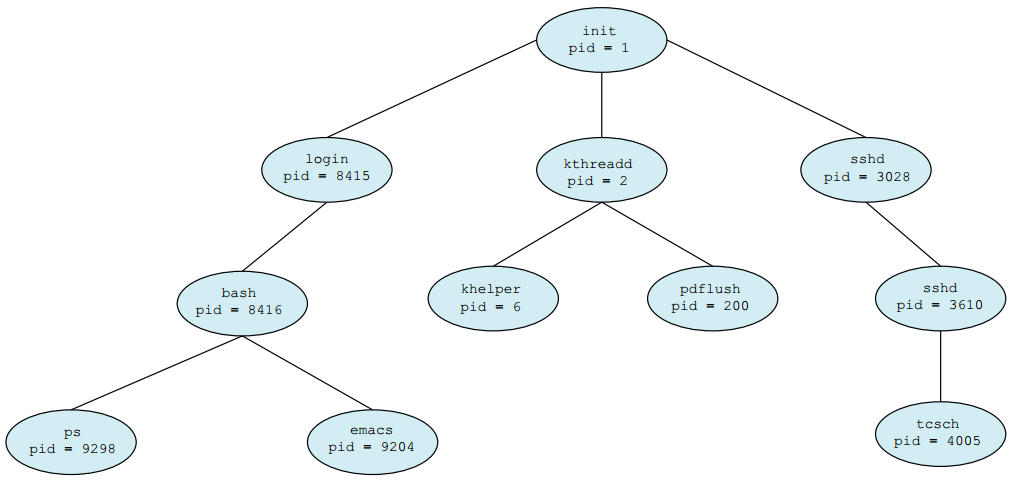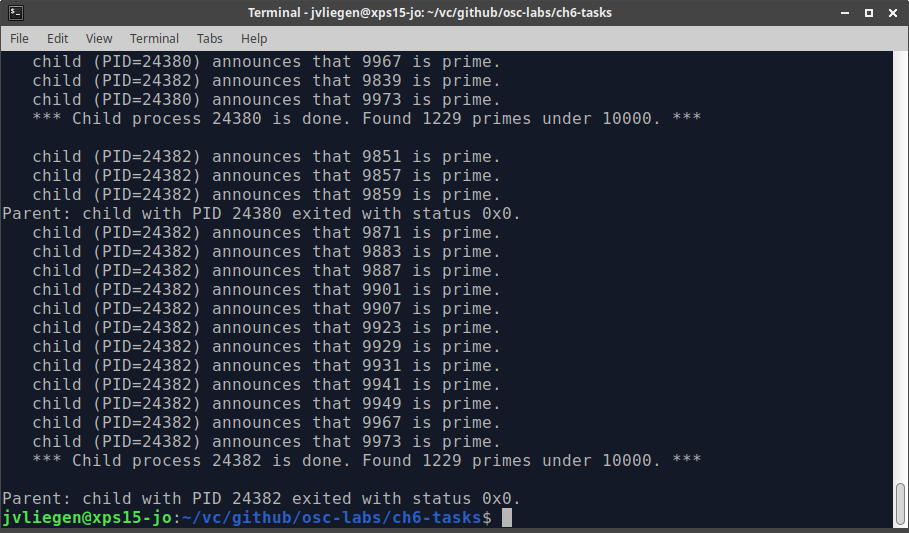6.2: Processes (lab)

source: SILBERSCHATZ, A., GALVIN, P.B., and GAGNE, G. Operating System Concepts. 9th ed. Hoboken: Wiley, 2013.
Creating and inspecting processes
TIP: the unistd.h header has some useful functions. You may also want to check out the wait() function in sys/wait.h and exit() in stdlib.h.
6.1 PID info
Write a C-program that prints its own PID on the screen.

An example output
6.2 Testing the waters with fork()
Write a C-program that spawns another process using fork(). Both parent and child processes announce their existence (through a printf) and their PIDs.

An example output
6.3 Multiple fork() children
Write a C-program that creates 4 child processes using fork(), where:
- each of the childeren checks which numbers below 10000 are prime
- every child reports only numbers that are prime (using printf), together with its own PID
- before exiting, a child must announce how many prime numbers it has found in total
- TIP: don’t worry too much about the efficienty of calculating whether a number is prime or not. The calculation is meant to be time-consuming.
- Answer this question: how are the processes scheduled? Do they all execute one after the other or at the same time? How can you tell?

An example output
6.4 I fork()ed the fork()!
Given the following C code:
#include <stdio.h>
#include <sys/types.h>
#include <unistd.h>
int main()
{
fork();
fork();
fork();
fork();
printf("Hi class\n");
return 0;
}
How many times will Hi class be printed? Why? Draw a pstree tree that visualizes the parent and children to help explain your answer.
6.5 fork() and order
Write two functions: a main() that calls another void function in which you fork() the process. If the resulting process is the child one, print some text. If it’s the parent process, print another text.
Execute the program from your commandline terminal a few hundred (!) times and carefully inspect the order of the printed messages. Are these always the same? If so, do you think this will always be the case for everyone running your specific hardware? Why (not)? TIP: Who decides the execution order and timing?